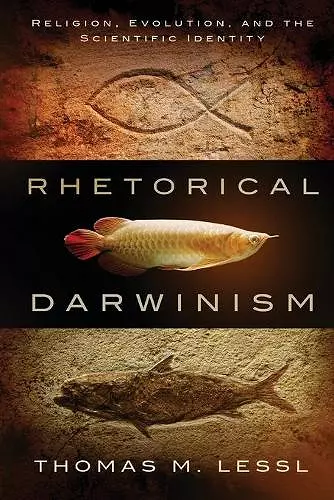Rhetorical Darwinism
Religion, Evolution, and the Scientific Identity
Format:Paperback
Publisher:Baylor University Press
Published:18th Mar '19
Currently unavailable, and unfortunately no date known when it will be back

Everything evolves, science tells us, including the public language used by scientists to sustain and perpetuate their work. Harkening back to the Protestant Reformation--a time when the promise of scientific inquiry was intimately connected with a deep faith in divine Providence--Thomas Lessl traces the evolving role and public identity of science in the West.
As the Reformation gave way to the Enlightenment, notions of Providence evolved into progress. History's divine plan could now be found in nature, and scientists became history's new prophets. With Darwin and the emergence of evolutionary science, progress and evolution collapsed together into what Lessl calls ""evolutionism,"" and the grand scientific identity was used to advance science's power into the world.
In this masterful treatment, Lessl analyzes the descent of these patterns of scientific advocacy from the world of Francis Bacon into the world of Thomas Huxley and his successors. In the end, Rhetorical Darwinism proposes that Darwin's power to fuel the establishment of science within the Western social milieu often turns from its scientific course.
Rhetorical Darwinism: Religion, Evolution, and the Scientific Identity received theReligious Communication Associatons ""Book of the Year"" award in 2012.
From the beginnings of the scientific revolution, demarcating the boundaries of science has been a problem for the scientific community. Thomas Lessl, comparing 'evolution' with what he calls 'rhetorical Darwinism,' argues persuasively that the scientific establishment has never guarded those borders carefully. -- Christianity Today
This is a superb piece of scholarship that ranges widely across disciplinary boundaries, shedding light on the underlying humanity of scientific inquiry and, ultimately, on its politics and sociology as well. Lessl asks novel questions about axiology and ontology and, in so doing, he becomes Charles Darwin's amaneusis for a new age. -- Roderick P. Hart, Dean, Shivers/Cronkite Chair in Communication, University of Texas
- Winner of RCA Book of the Year Award 2012 (United States)
ISBN: 9781602584044
Dimensions: unknown
Weight: unknown
348 pages